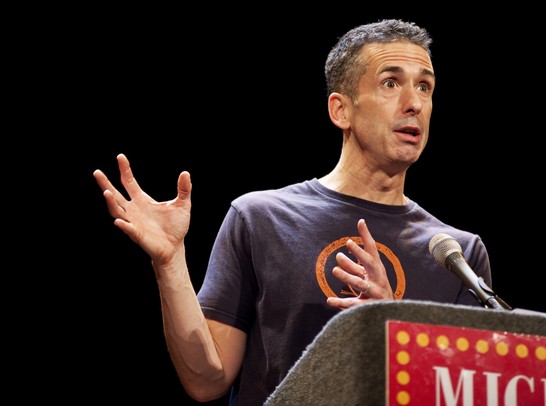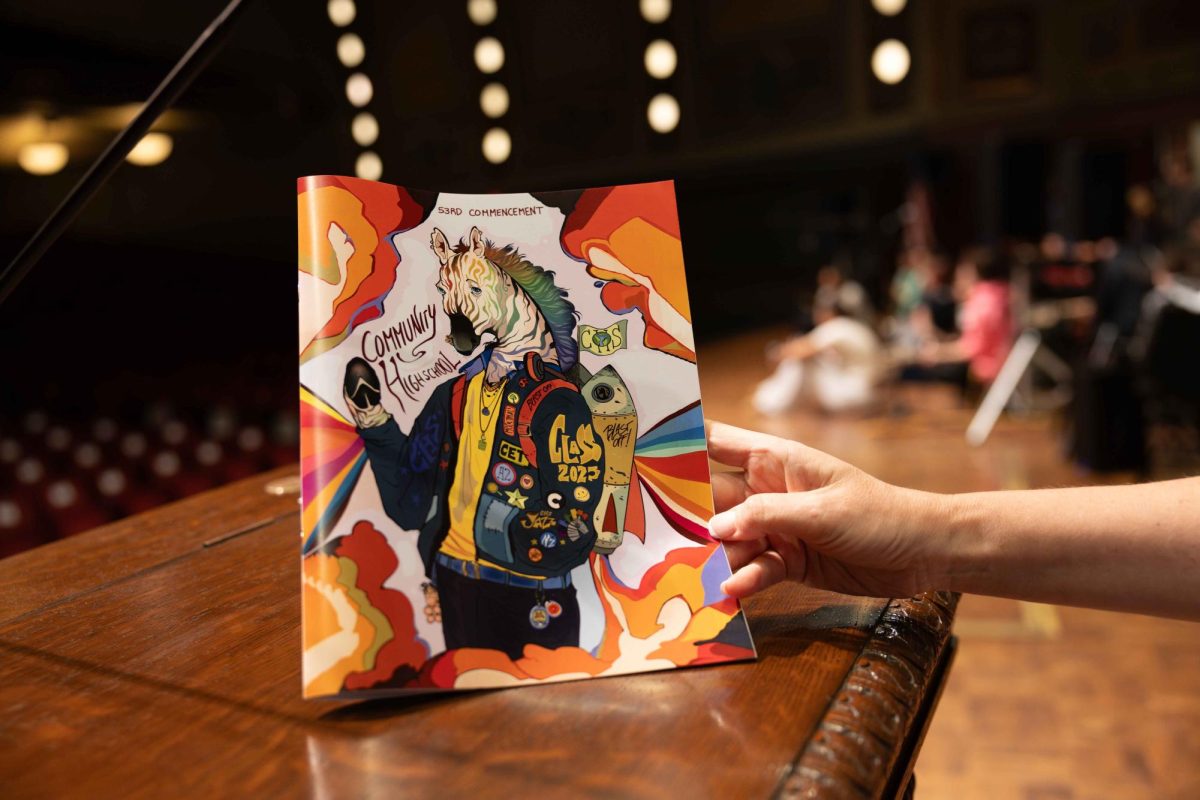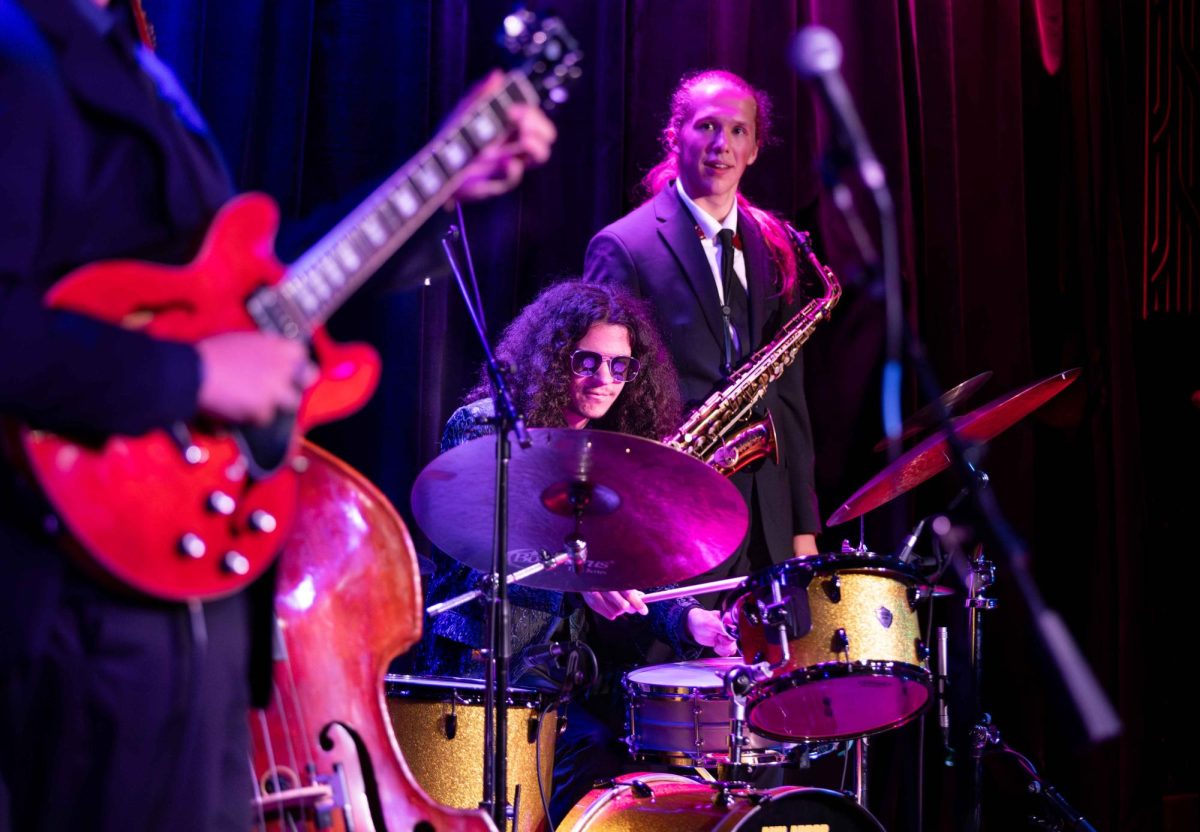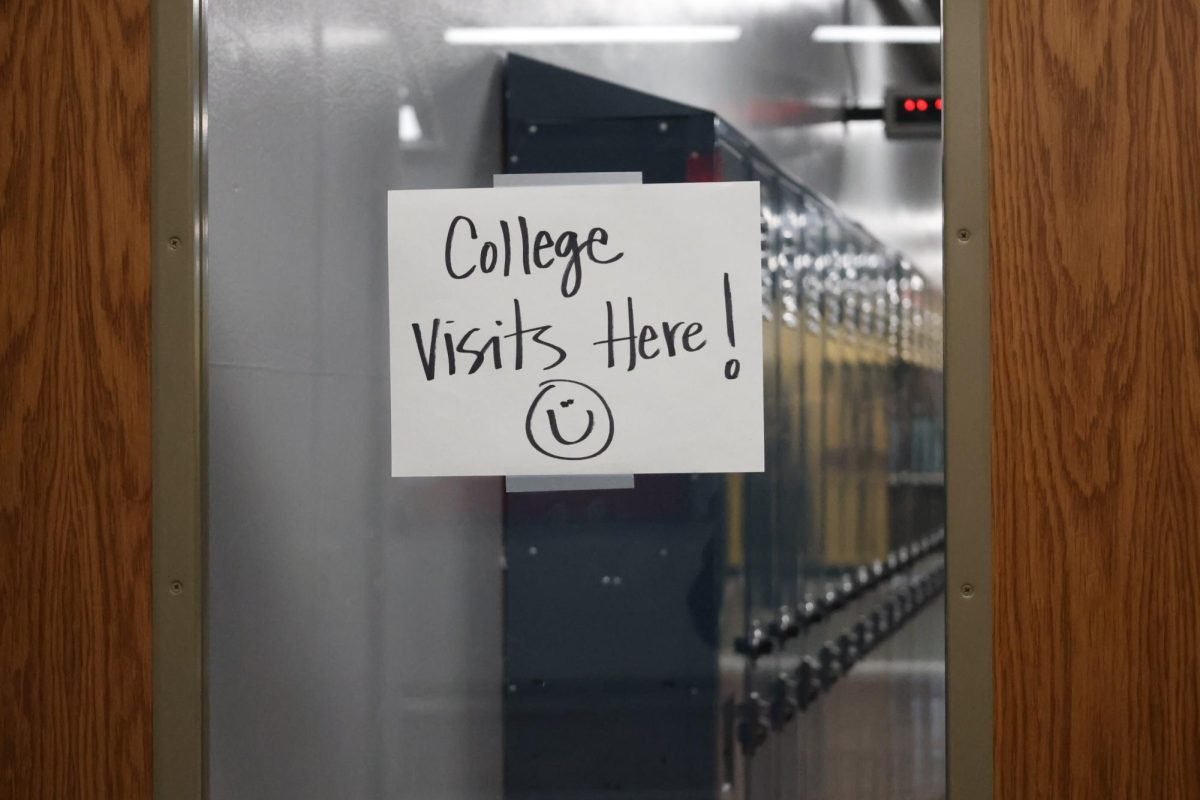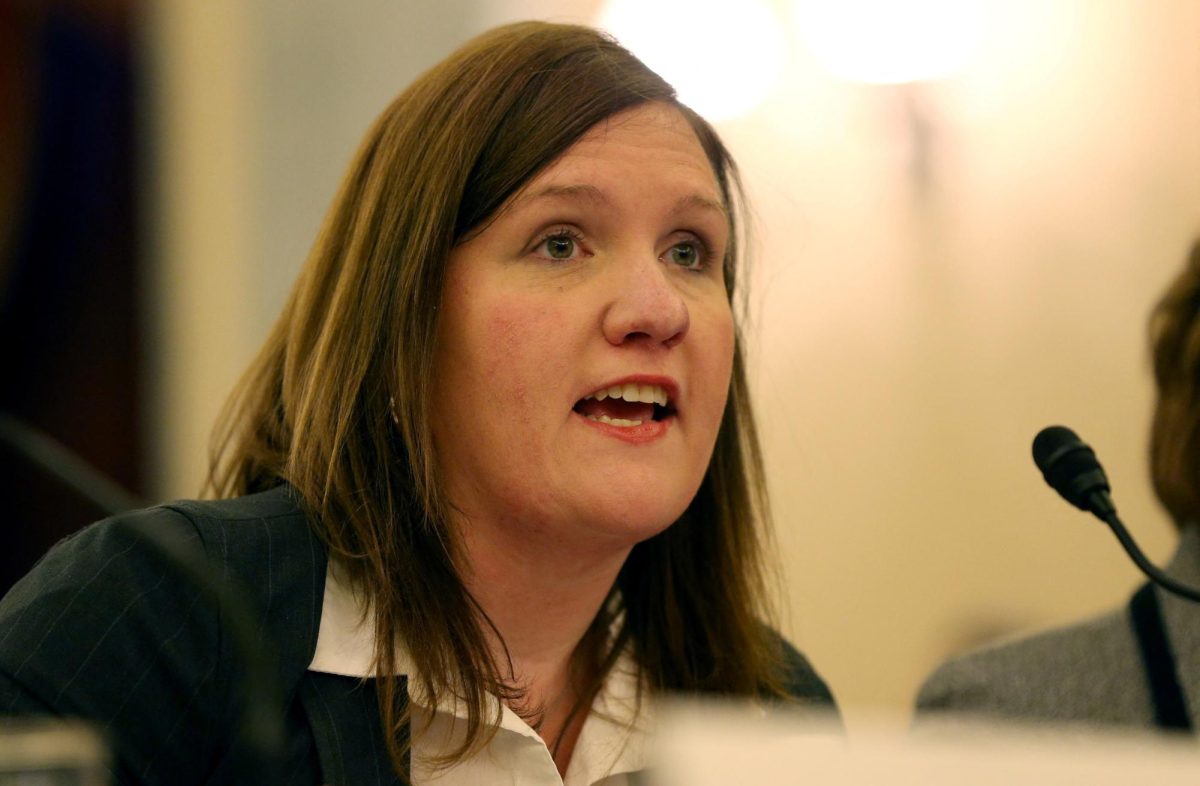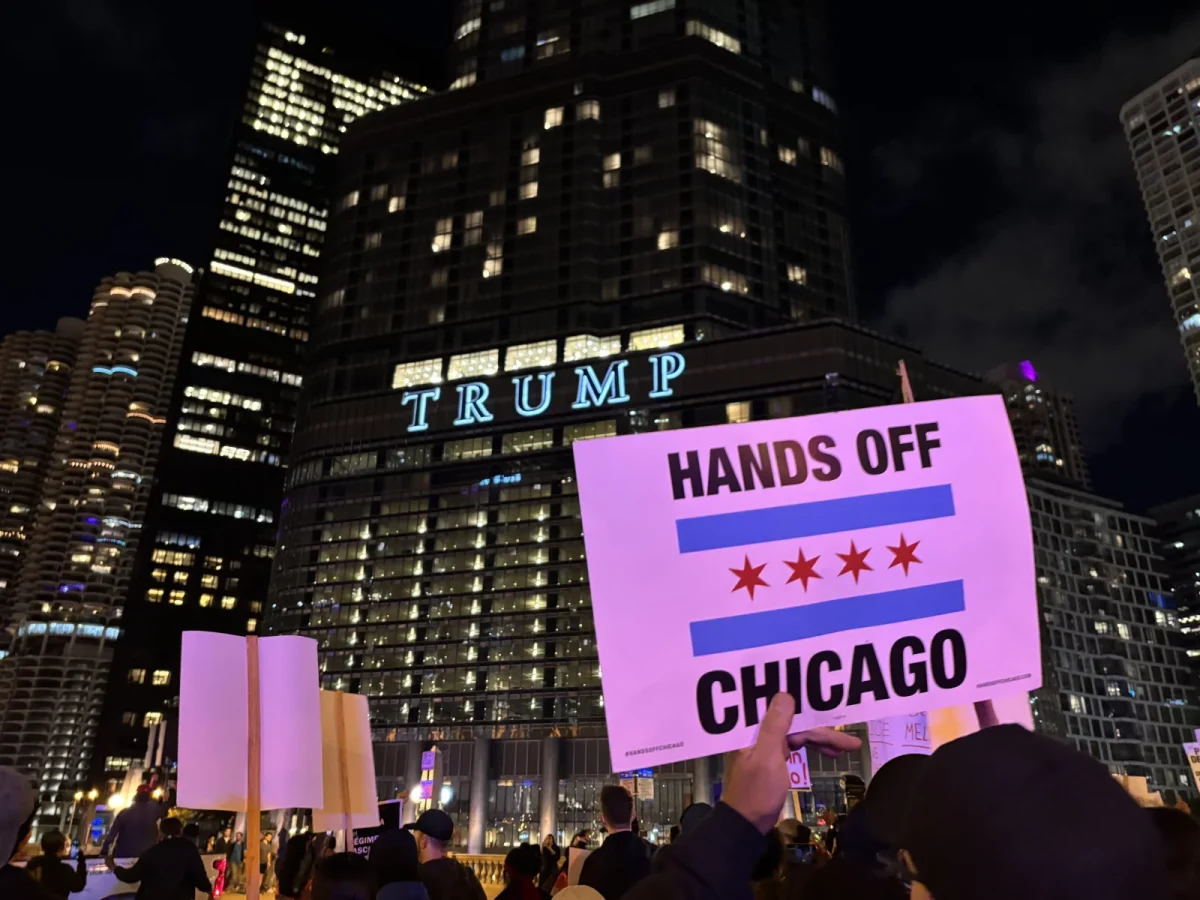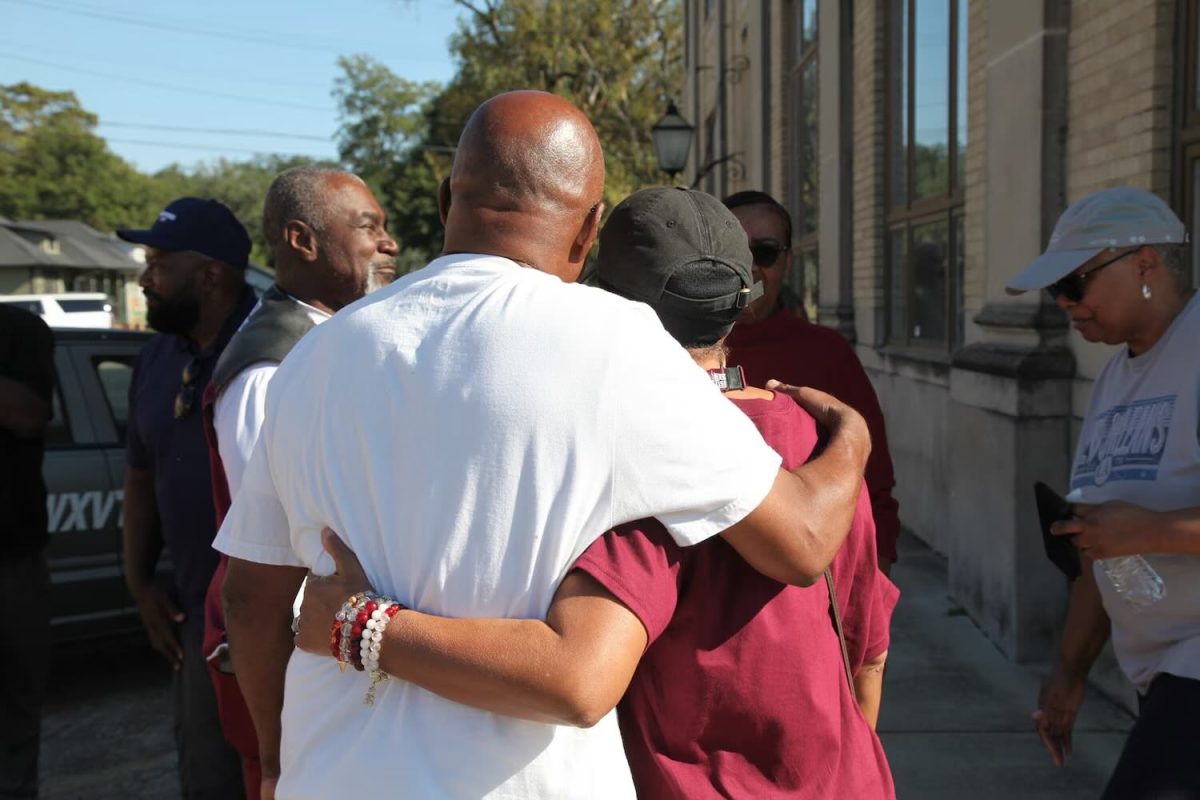When Seattle-based gay rights activist and sex columnist Dan Savage ambled onstage for his speaking arrangement at Michigan Theater on Sunday, Dec. 2, it immediately became clear that this was to be no ordinary speech. In a navy T-shirt and jeans, Savage was definitely projecting a more casual image than a typical touring speaker, and his laid-back attire wasn’t the only relaxed part of his speech. After he thanked Michigan Theater, as well as the event’s sponsors Common Language Bookstore and the LGBT newspaper Between The Lines, the first word out of Savage’s mouth was “Vagina” followed by “I hope the Michigan House of Representatives isn’t censoring me for saying that.”
Savage continued to ruminate on the word vagina, referring to the censorship of Michigan Rep. Lisa Brown this summer during a reproductive rights debate. He wondered, aloud, what the opposite of phallic symbolism was, rejecting the usual adjective yonic in favor of “vagestic.”
The word vagina, which Savage used to set the tone for the event and shock the audience, would not really be the subject of Savage’s talk. Instead, Savage arrived “with no agenda” and spent his hours onstage answering audience questions, which he read off of a tall stack of cards, before giving his unique, somewhat crass advice for each audience member’s dilemma. “I’m a recovering Catholic,” Savage read from one of the earliest cards, before pausing and squinting at the type. “No, sorry, it says ‘I’m a recovering alcoholic.’” Savage’s advice to the asker, whose girlfriend continued to smoke and drink around them despite their resolution to stay sober, was that if the girlfriend continued to disrespect the author’s recovery, they should “just break up.”

Many of the questions Savage read were asking advice for relationship problems. One card asked how a high-libido and low-libido couple could stay together and maintain a healthy sex life; another wondered if polyamory should be acceptable for people in long-distance relationships. One question, from a bisexual woman about to marry a man, asked how she could honor that part of her identity in the service. This question had Savage visibly raising his eyebrows, and he was rather dismissive of the writer at first, but he eventually agreed that it was hard for bisexuals to maintain their identities, and told a touching story of one straight wedding he’d attended, where the bride and groom made such a strong case for marriage equality that the bride’s conservative family was soon chatting cheerfully with Savage and the couple’s other gay friends.
Another touching moment was when Savage read a card asking for advice about how to come out to a homophobic brother. As it turned out, Savage had his own homophobic brother story, which he told with great gusto. Savage’s brother had often told Savage about his gay-bashing exploits at school, but when Savage eventually came out as gay, the brother was hurt Savage had waited so long to tell him, and insisted that his homophobic talk was just his way of “raising the subject.” Bizarre as the story was, Savage’s retold it in a poignant and engaging way, before advising the author to not overthink it and to stay proud of their identity.
Some of Savage’s responses, though, were less supportive. The most egregious example was a question from an elderly gay man, who mentioned that the gay youth these days had very little respect for the older men who had fought so hard for their rights in the Gay Liberation Movement. Although Savage admitted that some gay men can be obnoxiously racist and ageist when they first come out, he asserted that most likely, older gay men were just irrationally frustrated that the 20-year-old gay men didn’t want to have sex with them. “People aren’t obligated to suck your dick,” he informed the audience.
The word dick, incidentally, was a major theme of the afternoon. Savage used the word maybe twenty times in his talk, along with several cruder words. The word trans, on the other hand, referring to members of the queer community who don’t fit into the typical boy-girl gender binary, figured far less prominently in his talk. Until he was directly asked about it, Savage used the word only three times, each time as part of the phrase “lesbian, gay, bi, or trans.”
This lack of attention to trans issues was not unusual of Savage, who has been extensively criticized for perceived transphobia. Last winter, trans activists and other groups repeatedly doused Savage with glitter, or “glitterbombed,” him, a tactic sometimes used against enemies of the queer community. Anti-Savage activists, like the glitterbombing “Dan Savage Welcoming Committee” at the University of Oregon claim that Savage is a racist, a sexist, and a rape-apologist, and argue that although Savage should be allowed to hold his own views, he should not be touted as the spokesman for the broader LGBT community when he mainly addresses the issues of gay, cisgender, white men.
In light of this controversy, one of Savage’s questions directly asked him about the transphobia issue. Savage immediately affirmed that “I’m not transphobic,” and admitted that although he had written transphobic-sounding columns year ago, he has since “gotten the memo” and now knows better than to use words like tranny or shemale. Savage added that he had plenty of trans friends, and had been responsible for bringing more trans writers onto The Stranger, the Seattle newspaper in which his columns are published.
Savage then listed a long string of hate words for people both inside and outside of the queer community, including the word breeder, an anti-heterosexual epithet. He pointed out that he commonly refers to himself as a “faggot” and that “tranny” is, at this point, the only hate term he doesn’t use. He also said that, as a white, middle class, cisgender man, it was entirely possible that he was unconsciously racist, classist, transphobic, and sexist, but that he didn’t allow it to affect his work, and if he was transphobic, “this war’s over and you lost.”
Admittedly, Savage had a head cold at the time of his speaking engagement, and had ingested codeine to deal with the symptoms, so he wasn’t at his most clear-minded. In addition, as he repeatedly reminded his audience, “Marijuana is legal now in Washington State.” Still, those unfamiliar with the coarse tone of his column would have found his talk astonishingly free of the politically correct language of Ann Arbor’s usual political discourse.
At one point in his talk, Savage stated that the Catholic Pope thought legalizing gay marriage would lead to the extinction of the human race. As Savage explained, the argument here was that all heterosexuals are just repressed homosexuals, and with gay marriage an option, they would immediately divorce their opposite-sex spouses and find a same-sex spouse in some kind of infernal gay square dance. “So for all you straight people out there, the Pope doesn’t believe you exist,” Savage told his audience, following that statement up with “Personally, I think the Pope is projecting.”
All in all, my impression of Dan Savage was that while he is incredibly supportive to people similar to him, he is neither willing nor able to extend that supportiveness to those outside his demographic. Savage’s best known accomplishment, the It Gets Better project, which seeks to prevent suicide in gay youths, has been an incredible contribution to society and has doubtlessly saved the lives of dozens of gay teens, but it seems transgendered people, gay Catholics, pro-life allies, and anti-marijuana activists would more likely feel turned off and alienated if they had attended this weekend’s speech.
By all means, Savage is an excellent advocate for a certain portion of the gay community. But by allowing him to speak for the entire queer community, LGBT people may be losing support faster than they gain it. Savage’s public speaking abilities should not be denied, but we should make it clear for whom he’s speaking.
Photo from annarbor.com



